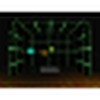An emotional journey to an inevitable destination
An emotional journey to an inevitable destination
Pros
- Emotionally powerful narrative
- Compelling use of audio and visuals to enhance storytelling
- Immersive exploration of real-life experiences
- Thought-provoking approach to interactivity
Cons
- Some gameplay elements feel underdeveloped
- Non-traditional game structure may not appeal to all players
- Minimal player influence on the outcome
Emotive Journey Through a Family's Ordeal
A Narrative of Love, Loss, and Perseverance
That Dragon, Cancer is not just a game; it's a profoundly personal experience that allows players to step into the shoes of a family going through an unimaginable challenge: the cancer diagnosis, treatment, and ultimate passing of their young son, Joel Green. This interactive experience transcends traditional gaming categories and becomes a medium for storytelling and emotional connection that resonates deeply with its audience on various levels.
Interactivity and Storytelling Blended Together
Labeled a game due to its interactive elements, That Dragon, Cancer offers minimal gameplay in the conventional sense. The activity involved takes on more of a narrative function, with the player's influence being modest at best. This, however, is deliberate; it emphasizes the heartbreakingly real theme: in the battle against cancer, control is often an illusion. The inability to alter the course of events serves to amplify the message and impact of the game.
Through exploration of the game's scattered vignettes, players experience fragments of memory - from serene moments feeding ducks in a park to the sterile corridors of a hospital. Each scene is methodically crafted to draw the player into a profound connection with the family’s experiences, and to evoke a spectrum of emotions including hope, despair, and the tedium that comes with chronic illness.
Visuals and Audio as Instruments of Empathy
The game utilizes its visual and audio design masterfully, with poignant moments achieved through subtle changes in color. An instance where the game's vibrant landscape shifts to monochrome as you approach Joel signifies much more than a change in palette. It represents the deep emotional shifts the family endures - sorrow, emotional exhaustion, and the stark reality of their situation.
Audio also plays a critical role, with soundscapes enhancing the storytelling in a meaningful way. Whether it's the joyful giggle of a child or the somber tones during moments of reflection, the auditory experience is an integral aspect of this emotional mosaic.
Gameplay Elements: Purposeful Imperfections
It’s worth noting that some gameplay in That Dragon, Cancer can be jarring due to its less polished mechanics. Whether steering Joel on balloons or engaging in a seemingly whimsical kart race, players may encounter clumsy controls. Yet these imperfections don't necessarily detract from the overall experience. In fact, they underscore the lack of control and the chaotic reality of dealing with a relentless illness.
Conclusion: An Experience Beyond Traditional Gaming
While That Dragon, Cancer may stumble in some technical aspects, its true merit lies in its ability to touch hearts through its narrative. It might not fit neatly into the category of a game or an interactive movie, but it doesn’t need to. That Dragon, Cancer is an experience – a vessel for conveying a story of love, loss, and the indomitable human spirit. For those seeking an experience that defies convention and hits close to home, That Dragon, Cancer is a unique and important journey.
Pros
- Emotionally powerful narrative
- Compelling use of audio and visuals to enhance storytelling
- Immersive exploration of real-life experiences
- Thought-provoking approach to interactivity
Cons
- Some gameplay elements feel underdeveloped
- Non-traditional game structure may not appeal to all players
- Minimal player influence on the outcome




